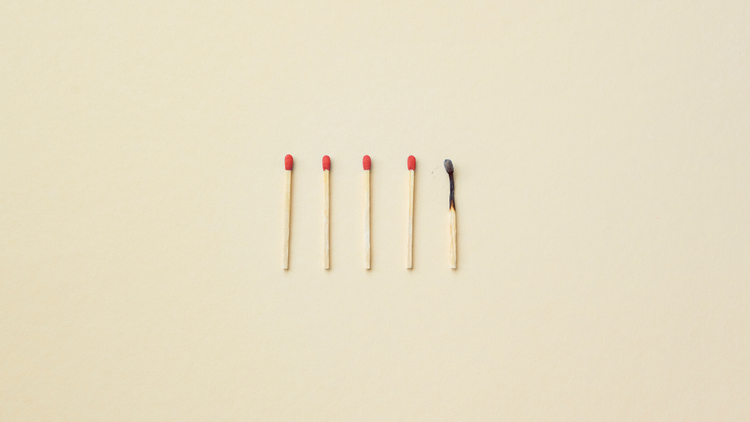The Psychology of "Sunday Scaries" (and What to Do)

It’s Sunday afternoon. You’ve had a decent weekend. You relaxed a little, maybe even caught up on rest. But now something has shifted. A heaviness has crept in. Your thoughts are scattered. Your chest feels tight. You keep glancing at the clock, not wanting the day to end, but not enjoying it either.
That feeling has a name. And it’s more common than most people realise.
They call it the Sunday Scaries. But it’s more than a catchy phrase. It’s a very real form of anticipatory anxiety. And if it’s happening to you, you’re not broken or weak. You’re reacting to the emotional weight of what Monday represents (and there are things you can do about it).
What are the Sunday Scaries, really?
Sunday Scaries aren’t just about not wanting to go to work. They’re a physiological and emotional response to the transition between rest and responsibility.
As the weekend winds down, your mind starts running ahead. You think about unread emails, meetings, conversations you’re dreading, decisions you need to make, and deadlines waiting for you. And because you can’t act on most of it until Monday, the uncertainty builds. You’re anticipating stress but have no outlet to release it.
This creates a state of emotional tension that can show up as restlessness, irritability, flatness, or even dread. And it’s not just happening in your head. It’s your nervous system responding to a perceived loss of autonomy.
Why you can feel this way even if you like your job
One of the biggest myths about the Sunday Scaries is that they only happen when you hate your job. But even people in fulfilling roles feel that Sunday shift.
Sometimes it's about performance pressure. Sometimes it’s the emotional toll of leading, managing, or caregiving. Sometimes it’s the anticipation of being “on” again, of returning to a world that asks a lot of you.
For others, it’s the psychological discomfort of switching roles — from individual to employee, from rest to responsibility. That transition can feel jarring, especially if your work week is intense, demanding, or unpredictable.

What the Sunday Scaries feel like
For many people, the Sunday Scaries don’t show up as obvious dread. They sneak in.
You might find yourself mindlessly scrolling, unable to enjoy what you’re reading. You become short-tempered, even though nothing major has happened. You cancel plans or move through your evening in a fog.
Your body feels restless but unmotivated. Your mind jumps between tasks, conversations, or vague concerns about the week ahead. You might even feel a low hum of guilt, like you should be doing something to prepare, but you don’t know what.
This is not laziness. It’s your nervous system trying to pre-process what it perceives as stress. And without an outlet or reset, it loops in the background.
What helps (and what actually makes it worse)
Many people try to outrun the Sunday Scaries by powering through. They clean the house, prep for Monday, answer emails, and push themselves into productivity. Others do the opposite — they disengage completely, numbing with food, media, or distraction.
Neither approach is wrong. But neither gets to the root of the issue.
What helps is presence. Not pressure.
Start by acknowledging what’s happening. Say it out loud or write it down: “I’m feeling anxious about the week ahead, and that’s okay.” Naming it interrupts the shame spiral and invites a gentler response.
Then, move toward something restorative. This doesn’t mean productivity. It means small, sensory actions that reconnect you with the present moment. A walk. A playlist. Cooking. Watering the garden. Calling a friend. Something real.
Try not to load Sunday night with too much anticipation. Instead, focus on anchoring the day in softness. You don’t need to “win” the evening. You just need to stop letting dread run it.
Support your future self — but don’t overdo it
Sometimes, a few minutes of low-stakes preparation can ease the tension. Clearing your desk. Writing down tomorrow’s top three priorities. Making lunch ahead of time. These little acts give your brain something concrete to hang onto.
Just make sure they’re done with care, not compulsion. If you find yourself spiralling into a productivity sprint just to avoid your feelings, take a step back.
You’re not failing for feeling like this. You’re responding to a system that expects you to run full speed, without pausing.
When the Sunday Scaries are trying to tell you something deeper
Sometimes, repeated dread before the workweek is more than just a transition glitch. It can be a sign of misalignment. A signal that your role, environment, or boundaries aren’t sustainable.
That doesn’t mean you need to quit your job. But it does mean it might be time to ask better questions.
→ What am I carrying into each week that feels too heavy?
→ What expectations have I accepted that no longer serve me?
→ What kind of support would help me feel safer on Monday?
Final thought: You’re allowed to begin the week gently
You don’t have to be excited for Monday to be a good employee. You don’t have to feel perfectly rested or mentally sharp to start well.
The Sunday Scaries are your body and mind asking for something different. More space. More kindness. More predictability. Less pressure.
You’re allowed to end your weekend without guilt. You’re allowed to begin your week without dread.
And you’re allowed to do it in a way that honours your pace, your needs, and your humanity.
—MRB
My goal is to help people thrive in a complex world. While I write as a psychologist, this content is general in nature, does not constitute a therapeutic relationship, and is not a substitute for personalised mental healthcare advice. Further, some posts may include affiliate links to resources I recommend. Read my full site policy here.



Member discussion